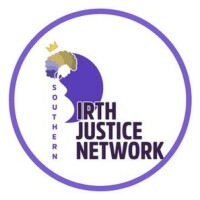About Southern birth justice network
Southern Birth Justice Network: Making Midwife and Doula Care Accessible to All
Southern Birth Justice Network (SBJN) is a non-profit organization that aims to make midwife and doula care accessible to all birthing people, especially those from marginalized communities such as people of color (POC) and LGBTQ+ individuals. The organization was founded in 2018 by a group of birth workers who recognized the need for more inclusive and culturally competent care in the Southern United States.
The mission of SBJN is to promote reproductive justice by advocating for equitable access to midwifery and doula care, educating communities about their options for childbirth, and supporting birth workers through training, mentorship, and networking opportunities. The organization believes that every person has the right to safe, respectful, and empowering birth experiences regardless of their race, ethnicity, gender identity or sexual orientation.
One of the main goals of SBJN is to increase access to midwifery care in underserved areas where hospitals may be scarce or inaccessible. Midwives are trained professionals who provide personalized prenatal care, attend births at home or in birthing centers, and offer postpartum support. They work collaboratively with obstetricians when necessary but generally have lower rates of interventions such as cesarean sections or epidurals. Studies have shown that midwifery-led care can lead to better outcomes for both mothers and babies including lower rates of preterm birth, low birth weight babies or infant mortality.
Doula support is another important aspect of SBJN's work. Doulas are trained professionals who provide emotional support during labor and delivery as well as practical assistance such as massage or positioning suggestions. They do not perform medical tasks but can help reduce stress levels which can lead to shorter labors with fewer complications. Research has shown that having a doula present during childbirth can result in higher satisfaction rates among mothers with less need for pain medication or interventions.
SBJN recognizes that there are many barriers to accessing midwifery and doula care, particularly for those from marginalized communities. These may include lack of insurance coverage, transportation issues, language barriers or cultural biases. The organization works to address these challenges by partnering with community-based organizations, offering sliding scale fees or scholarships for services and providing culturally competent care that respects the unique needs and preferences of each individual.
In addition to its direct service work, SBJN is also committed to advocacy and policy change at the local and state levels. The organization has been involved in efforts to expand Medicaid coverage for midwifery care in Georgia as well as advocating for more inclusive language in birth certificates that recognizes non-binary gender identities.
SBJN's impact can be seen through the stories of those who have benefited from their services. One mother shared her experience saying "I felt so supported throughout my pregnancy and birth knowing that my midwife was there every step of the way. She listened to my concerns and helped me make informed decisions about my care." Another mother said "My doula was a lifesaver during labor! She helped me stay calm when things got intense and made sure I had everything I needed."
Overall, Southern Birth Justice Network is an important resource for anyone seeking high-quality midwifery or doula care in the Southern United States. Their commitment to equity, inclusion, education, advocacy makes them a leader in the movement towards reproductive justice.
